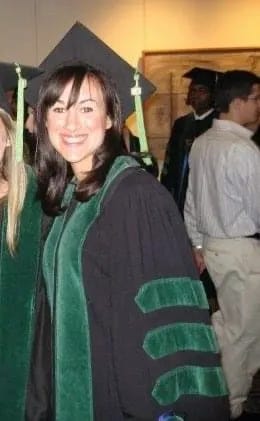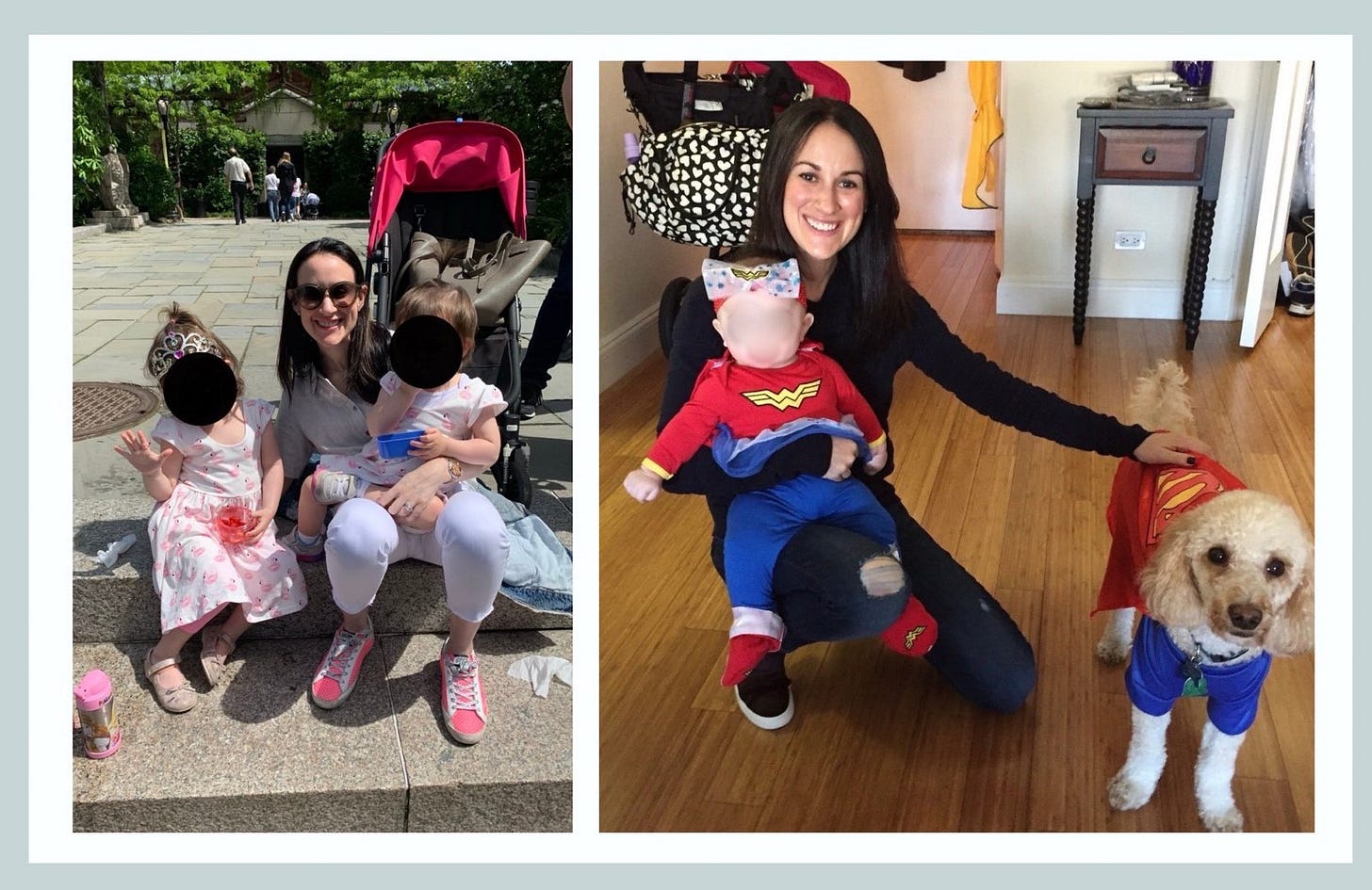Megan Martin, MD, MPH, is a NYC-based Anesthesiologist and mother of two young daughters. She took time away from her career to care for her family during the pandemic lockdowns and rallied for reopening schools, unmasking toddlers, and restoring normalcy to America’s children.
Dr. Martin joins Restore Childhood’s Newsletter as a guest writer to share her personal reaction to NFL kicker Harrison Butker’s commencement speech delivered at Benedictine College in Atchison, Kansas, on Saturday, May 11, 2024.
Kansas City Chiefs kicker Harrison Butker raised a firestorm with his commencement speech on May 11th at Benedictine College.
While I don’t agree with much of his speech and content, I think he touched upon a topic that has been exposed quite nakedly since the pandemic in 2020.
The reaction to Butker’s speech (WATCH below) cast a new light on how our modern, so-called progressive society views the role of women in the professional and household setting.
According to the Wall Street Journal, 12 million women lost or left their jobs during the pandemic. Many reasons contributed to this, including loss of childcare and their own jobs being in an industry that was shut down, like the service industry. While it is difficult to get an exact estimate, around 75% of caregivers are female, with unpaid hours upwards of $470 billion dollars.
In a 2022 meta-analysis of 19 studies and over 70,000 participants, The Lancet found that amongst employed women, there was an association between poor mental health outcomes and unpaid labor. What was important about this study was that it found that women contribute 3-6 hours of unpaid domestic work versus men’s 0.5-2 hours, despite many combining this with paid employment. Unpaid, “invisible labor” contributes to the decline in women’s mental health in traditionally employed women.
This begs the question- what are those so angry with Mr. Butker doing about the declining mental health of working mothers?
As a young physician, it did not occur to me that once I started my own family, I would stay at home with my children. Like many of my contemporaries, my husband and I hired a nanny to care for our young children while we both continued our professional careers.
Anesthesiology is a very challenging career that literally involves holding people’s lives in my hands. I take this job extremely seriously and treat every patient like my family. I have trained thousands of hours with a decade of experience as an attending physician. I work with a wonderful team of colleagues of surgeons and nurses, and if I need to use the bathroom- no one follows me into the stall.
Raising kids is also hard work, and there is no training manual. My mom job also comes with many difficult challenges that nearly surprise me daily.
Those who denigrate the vocation of homemaker are those who have never done the job.
I think back to 2015, when the obstetrician discharged us from the hospital with my firstborn. I’m not even sure I had ever seen a baby feed from a bottle. My husband and I were two of the most educated (on paper) and least educated in child-rearing. We added another one in 2017 because our eldest seemed to come along unscathed.
But, my role as mother is quite different from my husband’s role as father. The teetering act of “work-life” balance had begun for both of us when our first daughter was born, but I was expected to volunteer at her school and schedule all playdates and doctor’s appointments. If our nanny was unavailable, I would have to call out of work to care for our children.
I was part of the generation that Sheryl Sandberg told to “lean in,” but how does my professional self “lean” when my personal self is up all night with colicky babies, boo-boos, and lullabies?
How do I lean in at work when school events are scheduled at 9:30 am, and I am always the parent being called by the school nurse as a patient lies open on a surgical table and my husband sits at a desk?
In March 2020, when schools closed and the world shut down, the precarious tightrope we were walking shriveled and collapsed.
Schools and daycares closed, and a shelter-in-place order was given in New York City. I no longer had a cold operating room to decamp to overnight; I became a stay-at-home mom who cooked, cleaned, took care of my four- and two-year-old daughters and dog full time, and ran Zoom school from our 1,000-square-foot apartment.
I was not alone.
Globally, women left the workforce in numbers unprecedented in decades. And we “leaned in” to our new unpaid “vocation.”
Let me be clear- the act of raising my daughters is my greatest vocation, one that I do with tremendous love and care.
During my sabbatical from medicine, I saw mothers' strengths firsthand.
Mothers saw the harm being done to their children, so they were energized and mobilized as volunteers who joined WhatsApp groups and met with candidates for elected office to institute change.
Mothers rallied to keep schools open, unmask our toddlers, and stop the futility of COVID-19 shots being mandated to the the pediatric population.
There was no financial compensation for attending rallies, writing articles, or organizing Zoom meetings.
Mothers did it because their families mattered most, and their accomplishments mattered to their children and yours.
If homemaking mothers didn’t do it, no one else would have.
So, the problem, as I see it, is not with Mr. Butker.
The true problem is a society that devalues the invisible women’s labor at home while simultaneously pretending feminism is the definition of equality in the workplace.
I don’t pretend to have the answers, but by at least recognizing the issue, we can appreciate the unsung heroes at soccer practices and dance recitals, the women who remember to pack the car with snacks and favorite toys, and everything in between.
Making a home and being a mother are vocations that matter. We should cherish mothers, not denigrate them.










You would love the Maiden Mother Matriach chat group
Many women today don't know enough about the rich and complex history of feminism to know how hard many feminists woked for decades to demand respect and renumeration for women's work in the home. In the 1970s, feminists pushed a campaign demanding wages for housework. As I read Substack writers commenting on feminism, I realize that very few know much of anything about what feminists accomplished, and tried to accomplish. Sharon Salzburg is by no means the voice of feminism. She's the image of a feminist that is most palatable to the interests of powerful institutions. Women from the 1960s to 1980s created a powerful body of knowledge and effective social and political actions. Few people know about it now, even people who write reflections on feminism and housework. You should ask yourself why you never learned about feminists' brilliant ideas to empower women in the home and the workplace. The answer: it is inconvenient to those who profit from women's unpaid and exhausting work. Don't blame the feminists. Learn about them. They have a lot to teach the women of today.